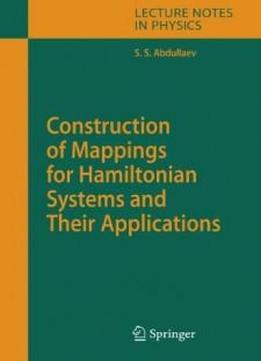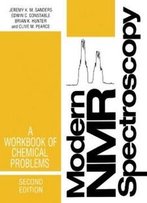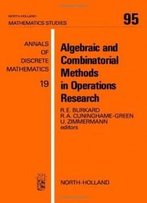
Construction Of Mappings For Hamiltonian Systems And Their Applications (lecture Notes In Physics)
by Sadrilla S. Abdullaev /
2006 / English / DjVu
7.4 MB Download
Based on the method of canonical transformation of variables and
the classical perturbation theory, this innovative book treats
the systematic theory of symplectic mappings for Hamiltonian
systems and its application to the study of the dynamics and
chaos of various physical problems described by Hamiltonian
systems. It develops a new, mathematically-rigorous method to
construct symplectic mappings which replaces the dynamics of
continuous Hamiltonian systems by the discrete ones. Applications
of the mapping methods encompass the chaos theory in non-twist
and non-smooth dynamical systems, the structure and chaotic
transport in the stochastic layer, the magnetic field lines in
magnetically confinement devices of plasmas, ray dynamics in
waveguides, etc. The book is intended for postgraduate students
and researches, physicists and astronomers working in the areas
of plasma physics, hydrodynamics, celestial mechanics, dynamical
astronomy, and accelerator physics. It should also be useful for
applied mathematicians involved in analytical and numerical
studies of dynamical systems.
Based on the method of canonical transformation of variables and
the classical perturbation theory, this innovative book treats
the systematic theory of symplectic mappings for Hamiltonian
systems and its application to the study of the dynamics and
chaos of various physical problems described by Hamiltonian
systems. It develops a new, mathematically-rigorous method to
construct symplectic mappings which replaces the dynamics of
continuous Hamiltonian systems by the discrete ones. Applications
of the mapping methods encompass the chaos theory in non-twist
and non-smooth dynamical systems, the structure and chaotic
transport in the stochastic layer, the magnetic field lines in
magnetically confinement devices of plasmas, ray dynamics in
waveguides, etc. The book is intended for postgraduate students
and researches, physicists and astronomers working in the areas
of plasma physics, hydrodynamics, celestial mechanics, dynamical
astronomy, and accelerator physics. It should also be useful for
applied mathematicians involved in analytical and numerical
studies of dynamical systems.










